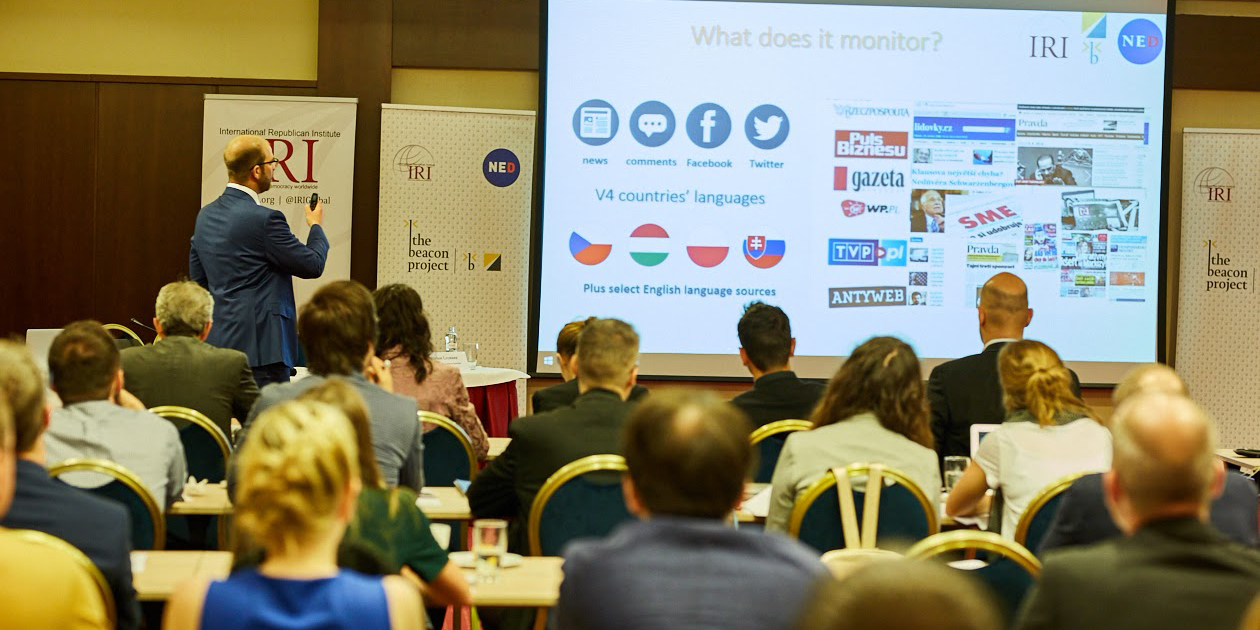visegrad four
history
The Czech Republic, Hungary, Poland, and Slovakia are collectively known as the Visegrad Four, or V4.
The V4 was named for the Hungarian town of Visegrad where, in 1335, the kings of Hungary, Poland, and Bohemia, met to form a mutually beneficial trade agreement. In 1991, in the final days of the Warsaw Pact, the democratically elected leaders of Hungary, Poland, and then-Czechoslovakia once again chose Visegrad as the site to pledge mutual cooperation as the Soviet Union teetered on the edge of collapse.
Understanding the nations’ shared history and culture is key to understanding their common political interests; such as the drive toward Western integration that culminated in the V4 joining the European Union as a bloc in 2004.
In the 1990s the International Republican Institute began working in the V4 supporting the development of political systems that allowed citizens to engage and take ownership in the political process. The core of IRI’s work has been with political parties, governments, and civil society organizations with the broad goal of strengthening citizen input at all levels of government, allowing for a more accountable and transparent government.
Today, the Visegrad Four nations are consolidated democracies, with functional democratic institutions and political parties. Robust, democratic debates carry on in each country about the nature and scope of cooperation with the EU, and to varying extents, Russia.
The V4 face challenges similar to those that most European nations face: an aging population, young people emigrating to work abroad, the migrant crisis, growing political and social division between major cities and the countryside, disenchantment toward political elites, and the tension between Christian values and secular democracy. Narratives about these issues are also among those most commonly used to spread false information, propaganda, and disinformation designed to erode trust and drive a wedge between citizens.
disinformation in the visegrad four
Reports and analysis from Europe continue to highlight the ever-increasing threat posed by disinformation and other means of soft power. The threat is emanating not only from traditional external antagonists such as the Kremlin, China, and Islamist radicals, but also from rising anti-systemic political movements on the extreme left and right.
Growing support for anti-systemic parties in recent French and German elections should not be discounted. Both elections are indications that the Russian Federation has targeted these and other campaigns across Europe. While France and Germany are robust well-established democracies, the shift in their elections emphasizes the need to double down on counter-efforts in countries where democratic backsliding has already taken hold, particularly in the states of Central and Eastern Europe.
The networked structure of the Beacon Project provides a platform for multiple stakeholders from across Europe to share research and best practices while encouraging collaboration to create more innovative and effective responses to disinformation focusing on a whole-of-society approach. The expert staff, partners, and members of the Beacon Project provide much-needed analysis through various professional and geographic lenses allowing network members to tailor their responses to the local circumstances.
partners in the region
The birth of the Beacon Project was in the V4. As a result, we have our most robust network of partners in this region. Under the Beacon Project, IRI has built a strong network of credible individuals and organizations active in discussions on European disinformation. This approach is rooted in the knowledge that local capacity to combat disinformation existed but lacked an organized network.
Among the V4 organizations which collaborate most actively in the Beacon Network are:
GLOBSEC
Slovak Foreign Policy Association
Political Capital
Centre for Euro-Atlantic Integration
European Values
Prague Security Studies Institute
Centre for Disinformation and Propaganda Analysis
events
global partners
